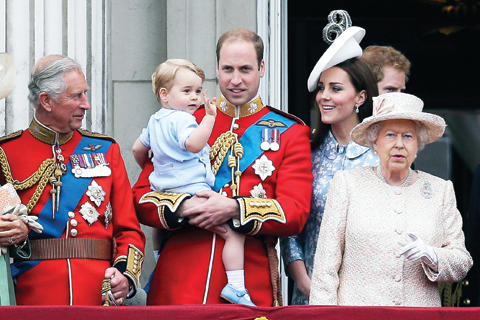KUWAIT: Minister of Social Affairs, Family Affairs, and Childhood Sheikh Feras Saud Al-Malik Al-Sabah said on Thursday that the history of Kuwaiti charitable work has expanded the horizons through its performance, ideas, proposals, and distinguished initiatives, describing it as “the bright face of the country.” This came in a statement by Sheikh Feras Al-Sabah on the sidelines of the closing ceremony of the Khalid Al-Issa Al-Saleh Award for Excellence in Charitable Work in its fourth session, organized by the Federation of Kuwaiti Charitable Societies and Institutions, and in the presence of a number of humanitarian bodies from inside and outside the country.
“The award seeks to promote charitable work in the country. It contributes to the advancement and development of works in associations as an incentive and path to excellence,” the minister added, calling, at the same time, to work to overcome obstacles and promote charitable work. The minister expressed his happiness with the participation of humanitarian charitable organizations from the Gulf Cooperation Council countries and the sponsorship of the General Secretariat of the Gulf Cooperation Council, represented by the Executive Office of the Council of Ministers of Affairs and Ministers of Labor, in order to achieve leadership and universality of the award.
He also extended his thanks and appreciation to the sponsor of the ceremony, Khaled Issa Al-Saleh, for his sponsorship and support for this award, and to the Union of Associations and Institutions for the distinguished preparation and organization of the award. For his part, the President of the Union of Kuwaiti Charitable Societies and Institutions, Secretary-General of the Award, Nasser Al-Ajmi, said that the award witnessed the participation of all GCC countries. The categories were divided evenly in order to provide transparency and equal opportunities.
Al-Ajmi explained that the number of participants in the fourth edition increased, reaching 48 charities from inside and outside Kuwait, pointing out that this is an indication of the keenness of charitable organizations to improve their performance. The award is divided into two parts: the first (the performance of distinguished institutions) and the second (e-leadership) because of their great impact on the level of humanitarian work.
The Director of the Department of Social Affairs in the Executive Office of the Council of Ministers of Social Affairs in the Gulf Cooperation Council (General Secretariat), Dr. Saleh Al-Ghadhouri, confirmed to KUNA that Kuwait enjoys a distinguished role and position in humanitarian work. Al-Ghadhouri added that the participation of the executive office comes from “the lofty humanitarian idea of the award, which is at the heart of our goals.”
He revealed a future idea initiated by Kuwait and Bahrain concerning coordinating charitable work at the level of the GCC countries in a legal and organized manner under the auspices of the Ministers of Development and Social Affairs in the GCC countries. He pointed out that the Ministry has taken it upon itself to present a clear strategy for the future charitable project. — KUNA











